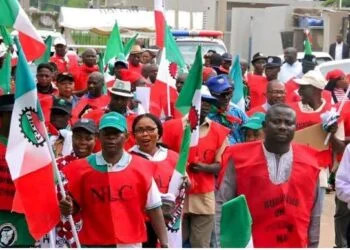Former Speaker of the House of Representatives, Yakubu Dogara, has urged northerners to reconsider their opposition to President Bola Tinubu’s proposed tax reform bills, which have sparked significant concerns among northern leaders.
The reforms, currently under consideration by the National Assembly, have drawn criticism for potentially imposing a disproportionate burden on the region.
The Northern States Governors Forum (NSGF), representing 19 states, amplified these concerns after consultations with the Northern Traditional Rulers Council, calling for a thorough review of the bills.
Speaking during a Channels Television town hall meeting on the reforms, Dogara appealed to northern governors and elites to adopt a forward-looking perspective, highlighting the potential long-term advantages of the proposed changes.
“I want to talk to my brothers in the North,” Dogara said. “I don’t think this is the time for us to begin to condemn the president and to begin to say that on account of these bills, he is anti-north. I want to remind us that the president has done something significant.
“If he can pursue this to the end, it would be that there is no northern leader of my lifetime that has done what the president has done for the North. And I will tell you what he has achieved—the creation of the livestock ministry. There is a global business around that.
“The global market size of dairies and beef in the next three years will rise to about $2.5 trillion. You can Google it. So if in the North, we are able to organize ourselves in such a way that we can corner just 5%, just 5% of this global market size of dairies and beef, I tell you that gives us $250 billion.
“We don’t need VAT from any state in Nigeria to survive. The North can survive on its own. We are the most endowed part of Nigeria.”
Dogara also addressed concerns about the timing of the reforms and the perceived lack of adequate consultations. He dismissed these criticisms, emphasizing that the focus should remain on the transformative potential of the reforms rather than the procedural or political issues surrounding their introduction.




























